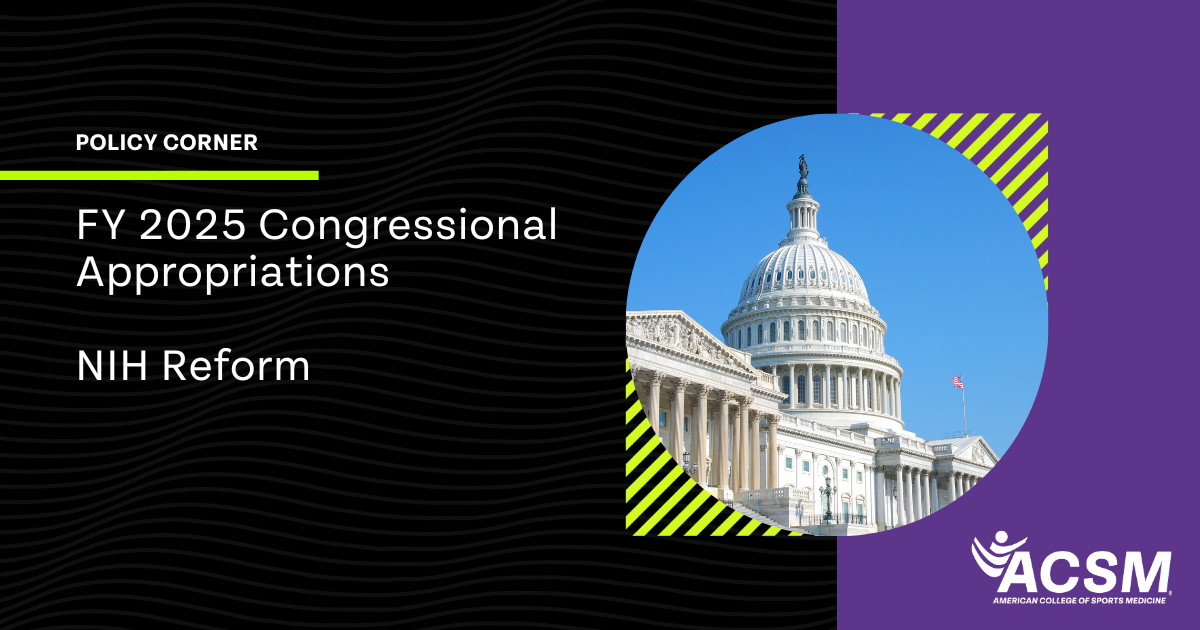|
July
11, 2024

FY 2025 Congressional Appropriations
As House spending bills undergo subcommittee markups, Senate appropriators have outlined 302(b) allocations, despite a lack of Republican agreement to expedite bill consideration. Currently, only the Agriculture, Military Construction-VA, and legislative branch measures have received allocations and will be considered at the full committee level on July 11, bypassing the subcommittee markups.
In the House, the Commerce, Justice, Science and Related Agencies bill has been released for subcommittee markup. On July 9, the House Appropriations Committee approved it with a recorded vote of 31–26. The bill allocates $9.3 billion for the National Science Foundation (NSF), exceeding the fiscal year (FY) 2024 enacted level by $199 million (2%) and falling $924 million below the president’s budget request. During the subcommittee meeting, the bill was moved to the full committee without amendments via a voice vote. The funding aims to maintain America’s global scientific prominence in the face of competition from China. However, both Matt Cartwright and Rosa DeLauro, ranking members of the subcommittee and full committee respectively, urged a no vote against the bill, citing concerns about defunding and politicizing law enforcement. A summary of the bill is available here.
The Labor, Health and Human Services, Education and Related Agencies (LHHS) bill allocates $48.6 billion to the National Institutes of Health (NIH), matching the FY 2024 enacted level. This proposal represents the largest restructuring of the NIH in a generation, consolidating 27 centers into 15. Subcommittee Chair Robert Aderholt considers the NIH overhaul a key goal. The LHHS bill strongly supports basic biomedical research focused on curing cancers, Alzheimer’s disease, and other chronic and rare conditions. During the subcommittee markup, Chair Robert Aderholt emphasized that amendments would occur at the full committee level, emphasizing the need to rein in excessive spending and restore fiscal responsibility. The bill proposes reductions in 40 programs and eliminates over 50 programs lacking proper authorizations. A summary of the bill may be found here.
Full Committee Chair Tom Cole praised the bill’s investment in impactful resources for the National Institutes of Health. He commended Chair Aderholt for initiating discussions on necessary reforms within agencies. While acknowledging that not all reforms can be addressed in this bill, Cole highlighted the valuable dialogue and cooperation with the authorizing committee.
Representative Rosa DeLauro expressed reservations about restructuring the agency through the appropriations bill. She emphasized the importance of public hearings and thoughtful processes to enhance the NIH’s status as a premier biomedical research institution.
Aderholt specifically highlighted provisions in the bill, including no funding for diversity activities, defunding Planned Parenthood, prohibiting funds for abortion-related fetal tissue research, restricting research dollars to labs in Russia or China to prevent future pandemics, and banning gain-of-function research.
The bill also maintains the Hyde amendment. Cole acknowledged that the bill’s final form may evolve, anticipating Democratic opposition to the initial version and Republican steadfastness on the Hyde amendment. The bill passed the subcommittee vote on June 27.
Reforming NIH
On June 14, House Energy and Commerce Committee Chair Cathy McMorris Rodgers (R-WA) asked stakeholders to provide their input on reforming the National Institutes of Health (NIH) to be more accountable, integrated, and agile; ensuring NIH funding mechanisms are clear and reflective of Congressional intent; and safeguarding NIH grants against national security risks and threats.
Rodgers also, along with Robert Aderholt (R-AL), Chair of the Labor, Health and Human Services, and Education Appropriations Subcommittee, which has funding jurisdiction over NIH, wrote an opinion piece in STAT news, “NIH Needs Reform and Restructuring, Key Republican Chairs Say.” Their reasons for reform included NIH approval of grants that conducted dangerous experiments and the lack of transparency at every state of various congressional inquiries. Rodgers and Aderholt ’s proposals include lowering the number of institutes and centers by combining them to reduce research duplication and potential misconduct. It has been nearly two decades since Congress evaluated NIH and advanced structural reform. Some stakeholders would like to see reform but with zero impact to the NIH budget.
The American College of Sports Medicine (ACSM) is closely monitoring these proposed changes to the National Institutes of Health (NIH). As part of our commitment to advancing scientific research and public health, we plan to submit comments on these proposed modifications. We value our members expertise and insights. If you have thoughts, concerns, or recommendations related to the NIH changes, we encourage you to share them with us. Your input will help shape our official response.
Please send your feedback to Monte Ward by August 1, 2024. We appreciate your active engagement in this critical matter.
NIH Request for Information in Public Policy Access
On June 17, 2024, the National Institutes of Health (NIH) released a Request for Information (RFI) entitled, Request for Information on the National Institutes of Health Draft Public Access Policy. NIH is soliciting comments from the public on the NIH Draft Public Access Policy and two supplemental draft guidance documents regarding government use license and rights and costs for publications. The NIH Draft Public Access Policy builds upon NIH’s long history of providing public access to scholarly publications resulting from the research it supports and proposes additional steps to accelerate access.